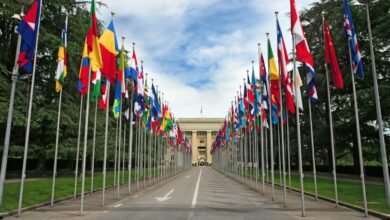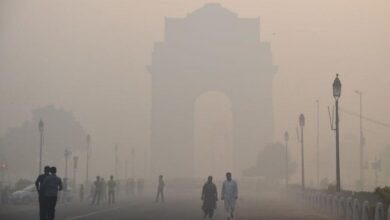Regular exercise can reduce mortality risk even in polluted environments: Study

The conclusions and recommendations of the study were reported in the Canadian Medical Association Journal
NEW DELHI — According to a recent study, regular exercise can lower the chance of mortality from natural causes, especially in places where air pollution is prevalent.
The study’s findings were published in the Journal of the Canadian Medical Association.
Dr. Xiang Qian Lao from Jockey Club School of Public Health and Primary Care, Chinese University of Hong Kong, Hong Kong, SAR, China, and co-authors wrote that habitual exercise reduces the risk of mortality regardless of exposure to air pollution while as air pollution generally increases the risk of death irrespective of habitual exercise.
As a result, even for those who live in highly polluted locations, regular exercise should be advocated as a health improvement approach, as per Dr. Lao.
The study spans 15 years over 384130 individuals in Taiwan
They studied 384130 individuals in Taiwan for 15 years, from 2001 to 2016, in order to learn more about the impact of regular exercise and long-term exposure to fine particulate matter on the risk of mortality from natural causes.
Even in polluted locations, the researchers noted that more frequent exercise was helpful compared to inactivity, while less pollution exposure was preferable.
They identified that a high level of habitual exercise combined with a low level of air pollution exposure was associated with a lower risk of death from natural causes. However, a low level of habitual exercise combined with a high level of exposure was associated with a higher risk of death.
Contribution to smaller studies advocating habit of regular exercise
This study is a contribution to the findings of numerous smaller studies performed in the United States, Denmark, and Hong Kong, all of which indicated that regular exercise is helpful, even in polluted locations.
The author, however, cautions that further research in locations with more severe air pollution is needed to assess the relevance of their findings.
They say their study emphasizes the importance of air pollution mitigation, such as reducing detrimental impacts of air pollution and maximizing the positive effects of regular exercise.
Physical inactivity and air pollution should be considered “syndemics,” according to academics from the Sydney School of Public Health, The University of Sydney, Camperdown, Australia, who claim that they impact behavior and health consequences when they are combined.
Recommendations for safe exercise in polluted regions, such as indoor exercise and avoiding walking and bicycling on busy roads, might exacerbate disparities since individuals of lower socioeconomic level frequently do not have these alternatives.
Drs. Ding and Elbarbary said that risk reduction measures that do not address the fundamental causes of noncommunicable illnesses may increase health disparities.
‘Both air pollution and physical inactivity should reduce‘
They went on to say that people should not be forced to pick between physical exercise and air pollution.
Physical inactivity and air pollution are both harmful to one’s health, the authors’ commentary states. They added that staying active should not come at the expense of one’s health due to air pollution.
They found that addressing both key public health concerns through synergistic, upstream, system-level methods would result in long-term health advantages for humans and the planet.







